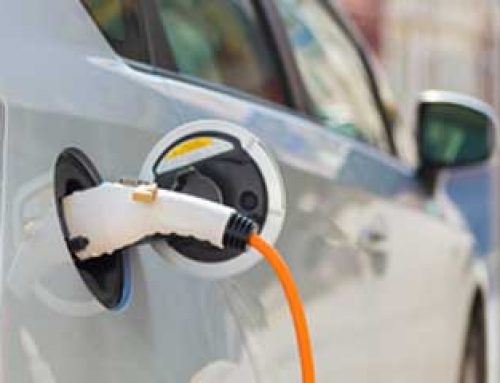[fusion_builder_container hundred_percent=”no” equal_height_columns=”no” menu_anchor=”” hide_on_mobile=”small-visibility,medium-visibility,large-visibility” class=”” id=”” background_color=”” background_image=”” background_position=”center center” background_repeat=”no-repeat” fade=”no” background_parallax=”none” parallax_speed=”0.3″ video_mp4=”” video_webm=”” video_ogv=”” video_url=”” video_aspect_ratio=”16:9″ video_loop=”yes” video_mute=”yes” overlay_color=”” video_preview_image=”” border_size=”” border_color=”” border_style=”solid” padding_top=”” padding_bottom=”” padding_left=”” padding_right=””][fusion_builder_row][fusion_builder_column type=”1_1″ layout=”1_1″ background_position=”left top” background_color=”” border_size=”” border_color=”” border_style=”solid” border_position=”all” spacing=”yes” background_image=”” background_repeat=”no-repeat” padding_top=”” padding_right=”” padding_bottom=”” padding_left=”” margin_top=”0px” margin_bottom=”0px” class=”” id=”” animation_type=”” animation_speed=”0.3″ animation_direction=”left” hide_on_mobile=”small-visibility,medium-visibility,large-visibility” center_content=”no” last=”no” min_height=”” hover_type=”none” link=””][fusion_text columns=”” column_min_width=”” column_spacing=”” rule_style=”default” rule_size=”” rule_color=”” hide_on_mobile=”small-visibility,medium-visibility,large-visibility” class=”” id=”” animation_type=”” animation_direction=”left” animation_speed=”0.3″ animation_offset=””]
There are two competing forces currently shaping the car benefit landscape. The first is benefit in kind (BiK) taxation, which is making some drivers question the value of choosing a company provided car. The second is the shortage of skilled workers, which is making many employers look for ways to enhance their benefit packages to attract the best talent.
From our own research, we have discovered that around three-quarters of eligible drivers believe that an employee provided car remains a valuable benefit, but a significant subset of these employees believe that high BiK rates are eroding that value to some extent.
Similarly, we found that more than three-quarters of fleet decision-makers see a strong future for employee car schemes. However, a significant proportion of these individuals expect traditional company car arrangements to morph into alternative types of employee car incentive, that reduce costs and offer greater flexibility.
One potential solution to both of these issues is Employee Car Ownership (ECO) schemes.
What is ECO?
ECO schemes have been around for many years but became somewhat overshadowed by salary sacrifice in recent times. However, changes to the way that BiK is calculated for salary sacrifice cars means that employee car ownership schemes are having a revival.
In all company car schemes if the vehicle is made available to the employee for private use, in addition to business use, then for tax purposes it is deemed to have been provided “by reason of employment” and BiK will be payable. Under ECO schemes the employee is the owner of the vehicle from day one, so BiK is not payable on the car benefit itself.
The employee car ownership scheme explained
For some, ECO schemes seem overly complicated but when taken apart they are, in fact, relatively straightforward mechanisms.
Each member of the employee car ownership scheme selects a vehicle from the list determined by the employer. This can be as restrictive or as broad a list as the employer chooses, just like a regular company car scheme. A credit sale agreement is used which gives ownership of the vehicle to the employee, who is then responsible for meeting the monthly finance and other costs associated with running the car.
The clever part comes in how these costs are covered. This is made up of:
- Reimbursement for business mileage in a private vehicle, allowed under the Government’s Approved Mileage Allowance Payments (AMAPs) scheme, at a rate of 45p per mile for the first 10,000 miles and 25p per mile thereafter, tax free.
- A top-up via payroll for any shortfall in the cost of the car left by the amount above.
- Depending on the scheme design, the employee may also be expected to make a contribution equal to, or less than, the BiK that was being paid when using a company car.
There are, of course, some other tax implications to consider:
While there’s no BiK for employees, and the AMAPs are tax and NIC free, any top-up payments are subject to income tax and National Insurance payments. Employers also have to pay Class 1 NIC on the top-ups, but are able to recover VAT on the fuel element of the business mileage rates.
Benefits of an Employee Car Ownership Scheme
By using the structure above, there can be significant cost savings for employers over the provision of a regular company car. The same is also true for employees, who no longer have the burden of BiK tax on their car benefit. It should, however, be noted that to maximise these financial benefits the employee will need to be covering the necessary business miles to generate sufficient AMAPs to cover most of the monthly cost of the vehicle.
Additional benefits to the employee come in the form of a brand new, fully serviced car that looks and feels exactly like a company car. The employer gains by keeping control of the fleet policy, and the vehicles being used for business journeys, both of which are lost if cash allowances are offered. The provision of a high-perceived-value employee car scheme also assists in the recruitment and retention of sought-after members of staff.
Is an Employee Car Ownership scheme right for my business?
With the issue of rising BiK taxation, and the recognition that employer-provided cars are still a highly valued benefit, employee car schemes of this type are definitely back on the corporate agenda. They won’t work for every organisation, however, and it’s important to seek independent advice before making any decision.
Maxxia’s team has many years of experience in working with organisations to assess whether an ECO scheme would be beneficial to them and their employees. Click here to find out more.
[/fusion_text][/fusion_builder_column][/fusion_builder_row][/fusion_builder_container]









Thanks a bunch for sharing this with all folks
you really recognize what you are talking about! Bookmarked.
Kindly also visit my web site =). We will have
a link exchange arrangement among us